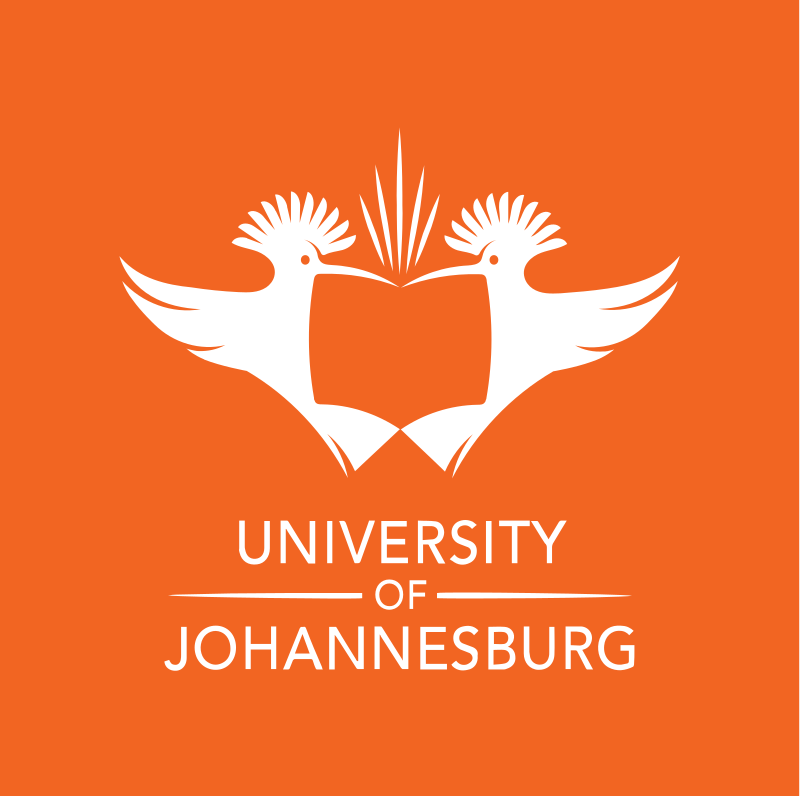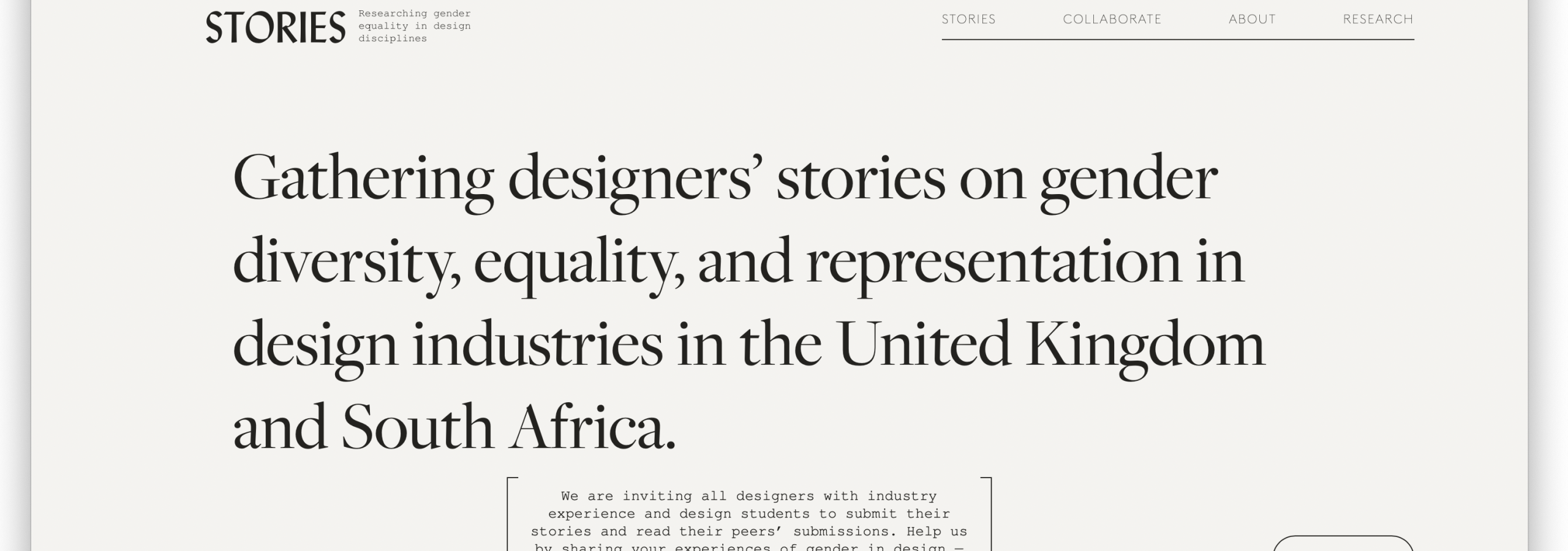
Project details
| Project lead | Dr Robyn Cook |
|---|---|
| Start date | 2018 |
| End date | Ongoing |
| Project website | unequalstories.falmouth.ac.uk |
The British Design Council (2018) identified that while 63% of all UK Art and Design graduates are female, the UK’s design workforce comprises a 78:22 gender split (male to female). These statistics are echoed in the SA context, with extreme gender imbalances in the disciplines of architecture, multimedia and industrial design (Bullock, 2019). Unequal Stories aims to surface the contributing factors underlying these statistics towards addressing inequality across the UK and South African design sector.
Unequal Stories has two central aims:
- Unequal Stories seeks to move beyond statistical data, to surface attitudes and perceptions (lived-experiences) of in-/equality(ies) in design across various design disciplines (industrial design, fashion design, graphic design, architecture, etc.)1 within Higher Education (HE) and Industry.
- Following the initial data gathering and analysis, Unequal Stories will develop pedagogic strategies towards critical practices of design justice and resistance that counter inequalities in the subject and society more broadly.
To gather the data cross-nationally, we deployed two research approaches.
- We developed a web-based data gathering and mapping tool via the Unequal Stories website which was then distributed to designers in both HE and Industry. This comprised an in-depth questionnaire around attitudes and perceptions in relation to gender equality; and, a narrative inquiry where designers were asked to share narrative ‘thick descriptions’ of personal experiences around (inter alia) career pipeline, retention, etc. The results were then mapped through data visualisation, allowing for a comparative analysis according to tag, location and discipline
- We developed an open-source, pedagogic toolkit comprising a series of asynchronous lectures, a reading pack, and a creative brief. Based on this, students from both countries undertook further ethnographic research within their specific fields, and then responded to their findings through a critical design project and online exhibition.
Project team
- Dr Robyn Cook - Senior Lecturer, Falmouth University
- Dr Angus Donald Campbell - Head of Design Programme and Senior Lecturer, Waipapa Taumata Rau | The University of Auckland
- Ashton Moseley - Lecturer, Industrial Design, University of Johannesburg
- Kimberly Bediako - Lecturer, Fashion Design, University of Johannesburg
- Caitlin Westgate - Design Research Assistant, School of Communication, Falmouth University
Partners and funders
Partners
- The University of Johannesburg
- The Desis Lab
Funders
- The UKRI / Global Challenges Research Fund (GCRF) funded this project to the value of UKRI / GCRF £57 219
Outputs & outcomes
- Initial analysis led to the conference paper titled ‘'The Pretty Stuff': Gender bias and the future of design knowledge in the South African industrial design’ which was presented at the DEFSA conference 2019.
-
Public exhibitions of the initial statistical data took place in both RSA and the UK 2020.
- The website was launched to begin data gathering.
-
The pedagogic toolkit was distributed to participating design courses and run across various programmes at Falmouth University graphic design, creative advertising and communication design.
-
A presentation was given to the DESIS network in South Africa on the project and the findings thus far.
-
As of July 2021, we have collected approximately 300 stories. The results of this are currently available to Industry, HE and other researchers via the online map.
-
The pedagogic toolkit was run across various programmes at the University of Johannesburg including fashion design, industrial and graphic design.
-
A presentation was given to the DESIS network in South Africa and in the UK to share the student outcomes cross-nationally.
-
We have had various interviews and reviews in the press including a feature on Design By Women (UK) and an article by The Craft and Design Institute (RSA).
-
We developed a larger AHRC funding bid to further develop the Unequal Stories project. If successful, this will see the project expand to include expanding the study into other geopolitical contexts, namely, South Korea (in partnership with Dongyang Mirae University) and New Zealand Aotearoa (the University of Auckland) and working towards greater impact through Industry partnerships with the British Council, the Design Council, and NPOs, including, Design Can and Diversity Works.
-
A conference paper titled ‘Critical design futures: Challenging the gender data gap through pedagogy was presented at the DEFSA conference 2021.
- A conference paper titled titled ‘Unequal Stories: Pedagogic responses to gender inequality’ was presented at Platform P and published in the in Korean Society of Typography Journal, Seoul, Korea, pp. 86-101, ISSN: 2093-1166
